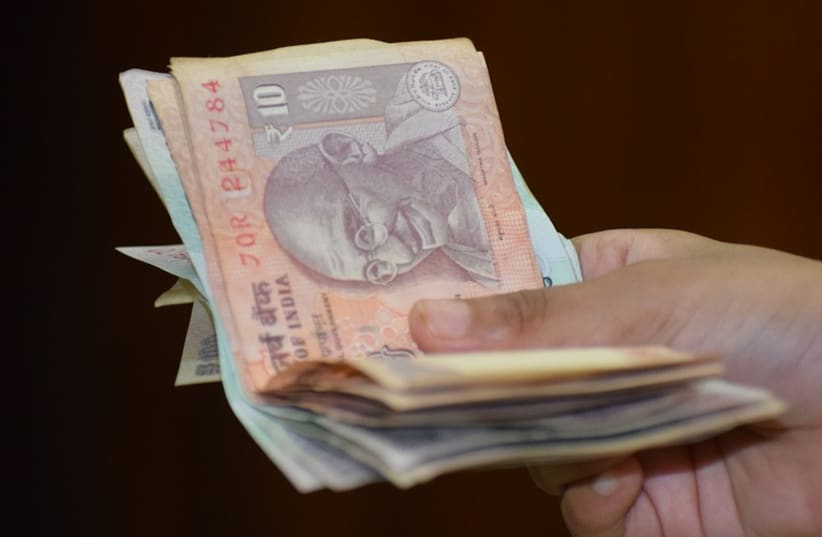Zardari, who served as the president of Pakistan from 2008 until 2013, is a co-chairman of the Pakistan People’s Party (PPP) and the husband of the late former prime minister Benazir Bhutto, who was assassinated in 2007.
Zardari and his sister Faryal Talpur, who are also both currently members of the National Assembly, are accused of running scores of fake bank accounts used as a money-laundering conduit for billions of rupees for their own use.
Zardari appeared in court on June 11 and was remanded into NAB custody for 11 days. The former president is to appear in court again on June 21.
Jamil Ur Rehman, a senior Intelligence official told The Media Line that in 2018 the authorities discovered scores of fake bank accounts in the name of poor people in which billions of rupees were being transacted, and all led to Zardari-owned companies.
Tanvir Akhtar Chaudhry, assistant prosecutor in the High Court, also confirmed to The Media Line that a suspicious transaction of 4.4 billion rupees ($58 million) was carried out through the fake accounts.
Pakistan’s former prime minister Mian Nawaz Sharif is also serving a term in prison for 2017 corruption charges. He was sentenced to seven years by the NAB special court.
Dr. Firdous Ashiq Awan, special assistant to Prime Minister Imran Khan, told The Media Line that the corruption cases against Zardari and Sharif were filed by the previous governments. Under Pakistan’s constitution no one is above the law, she said.
Awan strongly rejected the opposition’s claim that Zardari’s arrest before the annual budget is voted on is just a “diversionary tactic” and said that for the “first time in the history of Pakistan” NAB and other institutions are doing their jobs without any discrimination or any sort of pressure. There is no political victimization in the NAB cases, she said, and everyone has been arrested based only on “merit.”
Javed Kausar a lawmaker of the Imran Khan-led Tehreek-e-Insaf party told The Media Line the government carries out accountability investigations without any political discrimination.
“Imran Khan does not believe in revenge politics,” said Kauser. “The people of Pakistan have given us a mandate to work against corruption.”
However, former Prime Minister and PPP member of the National Assembly Raja Pervaiz Ashraf told The Media Line that such type of “bogus cases are just political victimization, nothing else.” The arrest of Zardari is a “revenge taking” policy of the Imran Khan-led government, the former prime minister added.
Nafisa Shah, PPP member of the National Assembly told the Media Line that the party’s central executive committee has decided to hold countrywide protests against the “unjustified” trial and arrest of Zardari.
Shah said the arrest comes before annual budget is voted on and is just a “diversionary tactic” of Imran Khan’s government because of the “complete failure” of the economic policies. She charged that Pakistanis are suffering due to a hike in prices and a rise in inflation.
In addition, the NAB also arrested Hamza Shehbaz, the leader of the opposition in the Punjab assembly after the High Court dismissed his bail petitions in various corruption cases. He was arrested on money laundering charges and in the Ramzan Sugar Mills corruption case in which he is accused of using public funds to construct a bridge which would benefit the Ramzan mills, owned by his sons.
Ahmad Bilal, a senior High Court lawyer, and former accountability associate told The Media Line that the case was transferred to an accountability court in the federal capital of Islamabad to avoid any outside political pressure or other local influences on the case. NAB was investigating the case following the Supreme Court of Pakistan’s verdict in the money laundering of billions of rupees through fake accounts, he added.
In a press conference held hours after the arrest of his father, PPP Chairperson Bilawal Zardari noted that he had been denied the right to speak in the national assembly and called for the resignation of the speaker and deputy speaker.
“I am a son of a former prime minister and a grandson of a former prime minister as well, so it is incumbent upon me to continue the struggle for the revival of democracy,” he said during the press conference.
At least 500 anti-riot security forces were deployed in Islamabad and protests including road blocks, closed markets and burning tires broke out in the main cities of the province after Zardari’s arrest, despite his son’s call for calm. .
About 300 police commandos and snipers were also sent to guard NAB Headquarters, Suhail Abbas, a senior Police official told The Media Line.
